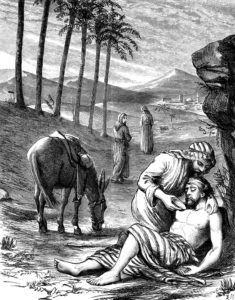This article first appeared in the Huntington Herald-Dispatch on June 28, 2017
Substance abuse is plaguing West Virginia. We have the highest overdose death rate in the country. Moreover, despite our efforts so far, the rates are increasing.
Substance use disorder, commonly known as addiction, is the compulsive use of a drug, despite its harmful consequences. There are many reasons why people develop addictions: physical dependency, genetics, family history and mental illness to name a few.
Moral failure is not on that list.
When we treat people with addictions as immoral, we add stigma and shame. Shame gets in the way of wholeness and prevents people from getting the care they need. Our communities do not need shame. We need treatment for both addictions and mental illnesses.
The National Institute on Drug Abuse reports, “Relapse rates for addiction resemble those of other chronic diseases such as diabetes, hypertension and asthma.” Similar to those chronic diseases, treatment of addiction requires continued management. And continued management requires health insurance.
Health insurance is neither sufficient in itself to prevent drug use, nor will it alone stop the opioid epidemic. However, it is a vital tool to stifle the epidemic’s effects on our communities. More coverage gives us a better chance of getting West Virginians into a lifetime of recovery.
Medicaid is a critical part of that equation. Medicaid is the primary source of health insurance for many of our state’s low-income residents. It also helps the state cover a significant portion of the costs of prevention and treatment programs. Yet, its future is uncertain.
The U.S. House of Representatives passed a bill, the American Health Care Act, a few weeks ago. It contained several proposals, including significant cuts to Medicaid, which the nonpartisan Congressional Budget Office said would lead to millions of people being uninsured.
The Senate is now considering its version of the bill, which the Congressional Budget Office said Monday would also lead to millions of people being uninsured.
I am a bishop of the United Methodist Church in West Virginia. I am sent by the church and called by God to minister to the spiritual, physical, emotional and psychological needs of our state’s residents. The proposed cuts to Medicaid, especially in the midst of a public health crisis, are unconscionable.

The parable of the Good Samaritan is central to my faith. Jesus tells the story of a person from Samaria who finds a man who had been robbed, beaten and left for dead. Religious and political leaders walked by him and ignored him. The Good Samaritan stopped, wrapped the dying man’s wounds, and took him to an inn. The Good Samaritan then paid the innkeeper to care for the injured man and promised to return and pay for the rest of the man’s care.
Jesus told this story to highlight what it means to be neighbors. It means caring for each other, no matter who the other is. It means ensuring sick and dying people – and people with addictions – get the care they need.
Yes, I believe we can make improvements to our health care system. Too many people are uninsured, and health care costs are far too high. However, any changes made to current law should have one goal, ensuring people get the care they need.
West Virginia’s senators, Joe Manchin and Shelley Moore Capito, will play a meaningful role in the debate happening in the Senate. I know they are aware of the challenges our communities are facing, especially when it comes to the increasing numbers of West Virginia individuals and families devastated by substance use disorder.
Our faith compels us to care for our neighbors. That means, at least in part, preserving Medicaid. Anything which does not increase access to high-quality, affordable health care must be opposed.
Bishop Sandra Steiner Ball is the resident bishop in the West Virginia Area of the United Methodist Church. She is also the vice chairperson of the West Virginia Council of Churches and co-chairs the council’s task force addressing substance use disorder and addiction in West Virginia.